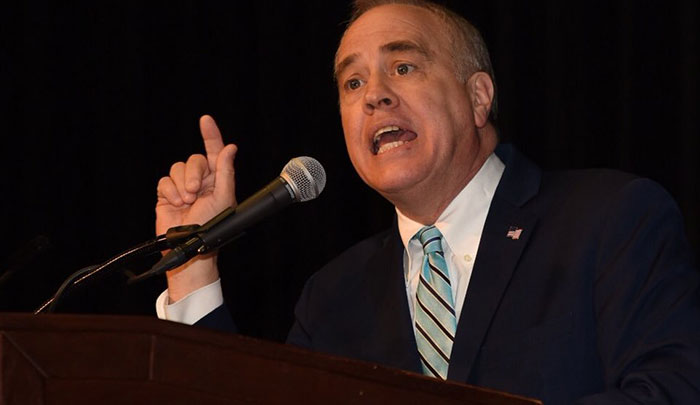Photo Courtesy of Comptroller DiNapoli’s Office
State DOH paid $1.28 billion in unnecessary Medicaid managed-care premiums over a nearly six-year period for enrollees who already had private insurance, according to Comptroller DiNapoli’s audit.
By Forum Staff
The State Department of Health paid $1.28 billion in unnecessary Medicaid managed care premiums over a nearly six-year period for enrollees who already had private insurance, according to a recently released audit by State Comptroller Tom DiNapoli.
Medicaid is a federal, State and locally funded program managed by DOH and provides a wide range of health care services to those who are economically disadvantaged or have special health care needs, DiNapoli noted. For the State fiscal year ended March 31, 2017, New York’s Medicaid program had approximately 7.4 million enrollees and claims totaling $58 billion.
The comptroller explained that under managed care, Medicaid pays managed care organizations a monthly premium for each enrolled Medicaid recipient and the MCOs arrange to provide medical services. As of August 2017, 4.4 million people were enrolled in mainstream managed care plans – about 2.5 million were enrolled through New York State of Health, New York’s online health insurance marketplace and the remainder were enrolled through other means.
Many Medicaid recipients have additional sources of health care coverage. DiNapoli pointed out that DOH’s policy is to exclude Medicaid recipients from mainstream managed care when they have concurrent comprehensive third-party health insurance. When the Medicaid managed care provider and the third-party provider are the same, the state can remove the recipients from managed care retroactively and recover the unnecessary premiums paid to the MCO, according to rules in the Medicaid Managed Care Model Contract. Auditors found that was the case for $26.9 million of the premium payments.
About $70.6 million of the premiums were paid to MCOs that were related through some form of ownership (such as parent, subsidiary, or affiliate) to the third-party insurer. DiNapoli recommended that DOH review these relationships to confirm if the premiums are recoverable.
DiNapoli’s auditors noted, however, that $1.17 billion (about 3.2 million premiums), which represented about 91 percent of the unnecessary premiums paid during the audit period of Jan. 1, 2012 to Sept. 1, 2017, are not recoverable (according to the model contract) because the MCO and third-party insurer are not related.
The Health Department often learns of enrollees’ third-party coverage after the coverage has taken effect. Of the $1.28 billion in payments, auditors determined Medicaid paid more than $691 million in premiums while enrollees’ third-party coverage was in effect, but not known by DOH. To prevent premium payments from being made – especially unrecoverable premiums – DOH should identify third-party coverage immediately.
Medicaid also paid more than $591 million (of the $1.28 billion) in inappropriate managed care premiums despite knowledge of the enrollees’ third-party coverage. Since June 2016, DOH has improved payment controls that use third-party insurance information to prevent such improper premium payments; however, these efforts only target NYSOH-enrolled recipients. DOH has not put similar controls in place with regard to non-NYSOH-enrolled recipients, DiNapoli noted.
“Glitches in the State Department of Health’s payment system and other problems led to over a billion dollars in unnecessary spending,” the comptroller added. “The department needs to improve its procedures and stop this waste of taxpayer money.”

